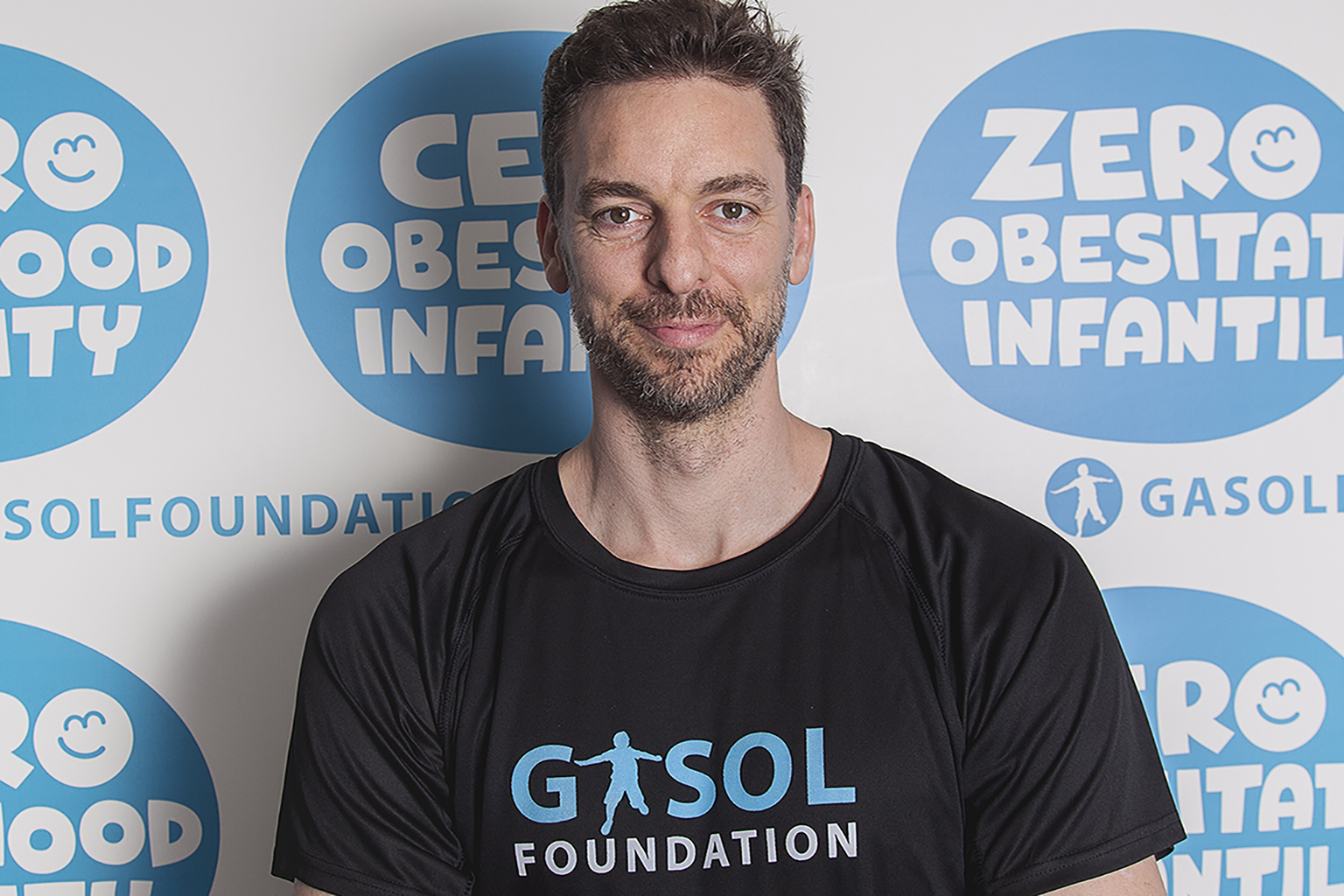One-Minute Interview with Pau Gasol, on Leveraging a Champion Athlete’s Platform for Public Health
September 29, 2020 – By Jared Mueller, Director – Mayo Clinic Innovation Exchange
For a six-time NBA All-Star who won two NBA championships — and who led Spain to Olympic medals during the 2008, 2012, and 2016 Summer Games — Pau Gasol has an unusually deep understanding of medicine. Gasol left medical school at the Universitat de Barcelona to pursue professional basketball. Throughout his career, he frequently supported children’s hospitals in the NBA cities where he played, even observing surgeries in theater, and last year was appointed as a Global Champion for Nutrition and Zero Childhood Obesity for UNICEF. In 2013, Pau and his brother Marc launched the Gasol Foundation to concentrate their efforts on eradicating childhood obesity globally.
While the Gasol Foundation was focused on children’s health long before the current crisis, its work has redoubled after the Gasols’ native country of Spain and adopted home of the U.S. were both badly hit by this year’s pandemic.
Gasol and his foundation have provided both emergency relief and ongoing programs to support vulnerable families’ health and well-being during these especially challenging times. They have teamed up with World Central Kitchen to provide meals and distributed activities to empower children to practice healthy habits at home. Pau and the foundation have inspired individuals and families to practice a #HealthyQuarantine. Both have vocally highlighted the importance of wearing masks and continuing to eat healthily and exercise (even via family dance parties, or other simple, in-home activities) to reduce the severity and health impacts of the coronavirus — and the equally pernicious health risks of childhood obesity.
Pau shared more details on the Gasol Foundation and his public health work with the Innovation Exchange this summer.
Q: Your work on children’s health dates back to your early engagements with UNICEF in 2003. A decade later, you and your brother launched the Gasol Foundation, providing programs promoting healthy habits to children. How has your approach to supporting children’s health evolved in recent years based on what you have learned so far?
PG: Tackling complex health issues such as childhood obesity requires a multifaceted and coordinated approach. It’s not enough to just work directly with children and families: we need participation from schools, government, mass media, and all agents involved in the education and development of children. That’s why the Gasol Foundation takes a collaborative approach and works in three pillars — through research, direct service programs, and awareness and advocacy to provide emergent solutions and bring about broad change.
Q: Medical leaders who know you remark on your depth of medical knowledge, some of which is retained from your medical training before entering professional basketball. How has your understanding of the social determinants of health affected your broadening advocacy during the pandemic?
PG: The pandemic has further illuminated and exacerbated health disparities. COVID-19 has also worsened the root causes of childhood obesity and added urgency to tackle it with effective health promotion strategies, with a focus on social justice and reducing inequities.
Q: Throughout your NBA tenure, you were famous for your intellectual breadth and eagerness to tackle new subjects. What do you want your legacy to be?
PG: I want my legacy to be that I was able to provide a voice for vulnerable children globally and help to ensure all children have an opportunity to grow healthy and reach their full potential. I want the Gasol Foundation to continue its progress towards our zero childhood obesity mission.
Q: What breakthrough innovations in healthcare delivery or technology excite you most?
PG: There are many new innovations and advances in technology that excite me. One is wearables, including fitness devices and smart watches being utilized for remote patient monitoring and as a research tool. We have actually been using some of this data at the Gasol Foundation to measure the decrease in physical activity as the result of the pandemic.
Views expressed by guests are their own and do not necessarily reflect the views of Mayo Clinic. As a not-for-profit 501(c)(3) charitable organization, Mayo Clinic does not participate in political activities.

